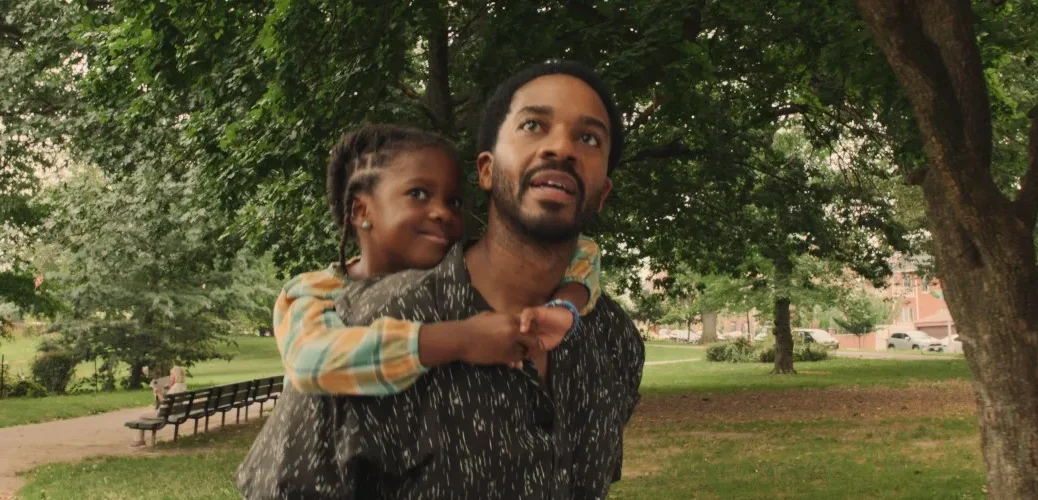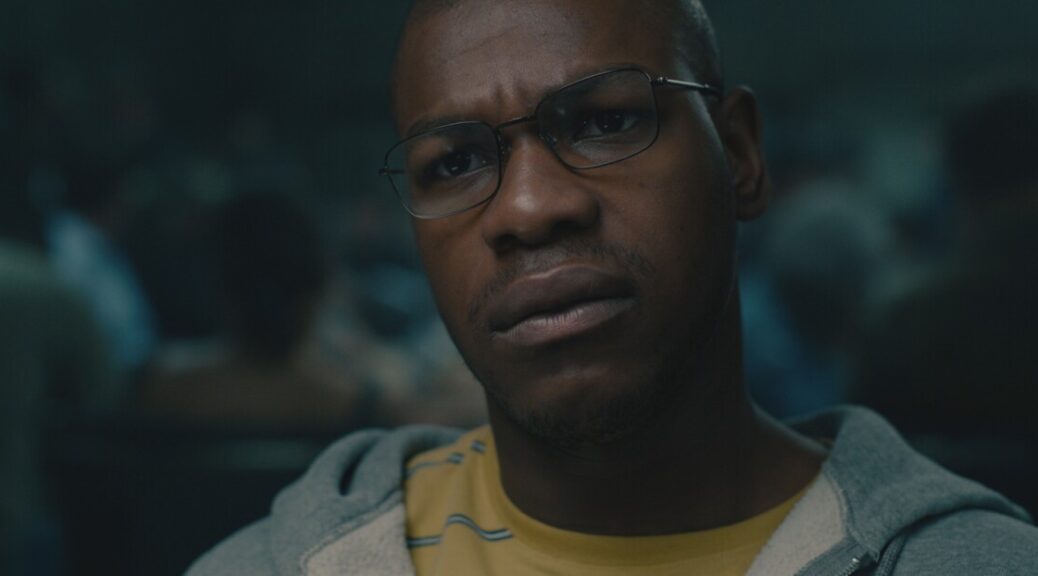Love, Brooklyn
by Matt Weiner
The early 2000s and its attendant malaise were fertile ground for the Judd Apatow manchild, romcom fixtures who enjoyed their blithe aimlessness between 9/11 and the Great Recession. Now as more films grapple with Covid—directly or, more often, by conspicuously dancing around the lacunas left behind in cities—Rachael Abigail Holder’s debut feature Love, Brooklyn points the way toward a new archetype: the mid-life coming of age crisis.
Roger (André Holland) is a writer and New Yorker in vintage Sex and the City mold. That is, he keeps landing the last media jobs on the planet that allow him to live in a nice apartment without a roommate while doing almost no writing (let alone research or reporting).
But no matter. There’s the ticking clock of Roger’s looming deadline for a new piece about the changing city, but that’s just a convenient device for Roger to bounce back and forth between his modern love triangle. Roger is casually dating Nicole (DeWanda Wise), a massage therapist raising a daughter and still processing the death of her husband. But he still maintains an uncomfortably close relationship with his ex-girlfriend Casey (Nicole Beharie), an art gallery owner facing mounting pressure to sell her space to larger developers.
Roger’s casual relationships have served him well, but it becomes clear to everyone else involved (and, at last, to him as well) that it’s time to commit to a solid future rather than hold onto the past—and that goes as much for his notions of the city as it does the people in it.
Holland, who was electric in The Knick, is more subdued as the indecisive Roger. There’s no quiet rage here, only the quiet resignation that comes with looking up one day and realizing everything and everyone else around you has changed. Gentrification is the more visible issue that his social circle grapples with, but it’s the atomization post-Covid that is the unspoken elephant in the room.
But then, so much goes unspoken in this mostly gentle slice of city life. The otherwise complex and emotional love triangle gets overly tidy when it’s time to wrap up the more existential loose ends—complete with classic SATC column voiceover to drive the metaphors home. Screenwriter Paul Zimmerman treats the three leads with such empathy and maturity that it’s a shame there’s so little time given to interrogate the changes and forces that the film alludes to.
What we do get, however, are sumptuous shots of Brooklyn, as seen through the eyes of those who love it. The characters may be conflicted on what the future holds for a city constantly in flux, but Holder and cinematographer Martim Vian make a strong visual case that community, not just love, is what we need to keep the soul of a city intact.






